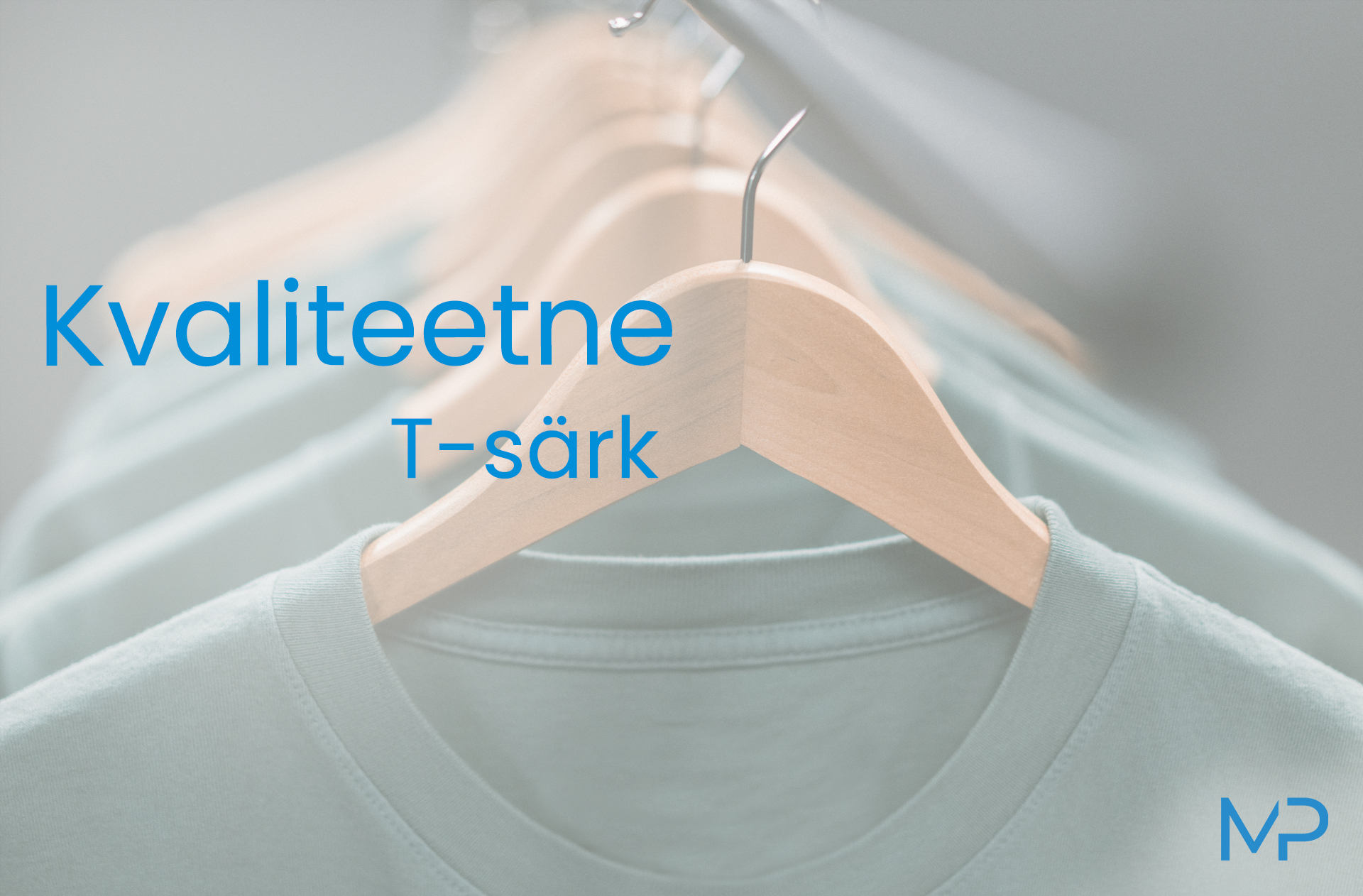- E-R 9.00–17.00
- +372 730 3570
- +372 502 5106
- mpreklaam@mpreklaam.ee
- Aleksandri 53, Tartu.

Condition is 100% cotton. But there are exceptions here too. The 100% cotton shirt becomes partially viscose in the case of a ruffled color. The natural cotton shirt can also be artificially silicone treated to increase durability. It is also worth monitoring the density of the textile. The printing method also affects the material. If we want to print a photo on a shirt, we need a textile that contains polyester to keep the sublimation print on the shirt. Polyester and cotton blended shirts combine the best properties of both materials. The polyester keeps the shape and prevents the shirt from wrinkling. Cotton makes the shirt breathable and soft. A blend of polyester and cotton is generally also a more affordable option. Another aspect that helps to identify quality are the seams: How many of them are hidden inwards? Are they reinforced and covered with satin? Have more complicated stitches been used that prevent the seams from breaking so easily when the thread breaks? Do the seams tear the fabric around the neck and at the ends of the sleeves, or can the fabric fall freely? All this is perfectly reflected in a decent neckline, shoulder line and sleeve ends.
The aspects that most affect the price are those that ask us moral questions. In order for suppliers and consumers to be aware of such aspects, there are a number of certificates that tell us the story of making a shirt.
In the case of cotton, the ideal is sustainably sourced organic cotton with the smallest possible ecological footprint, without excessive energy consumption. The Fairtrade certificate also ensures that this cotton has reached the producer even under conditions of fair management, respecting the conditions of workers and setting standards, ie without taking advantage of developing countries. T-shirt models:
A good example of this is the Neutral brand T-shirts, which are marked with six certificates: 100% certified organic cotton, EU Ecolabel, Fairtrade Certification Mark, SA 8000, Neutral® Responsibility and Oeko Tex Standard 100. These shirts are thin, but from high-quality 155 g / m² organic cotton. The Basic T-shirt is, as the name implies, a fairly standard 160 g / m2 cotton shirt. The special feature is added by 5% elastane in the neck, the shoulder seams and the silicone treatment. They all provide a form-fitting shirt.
Nanaimo is simple in nature, but based on our experience, a high-quality 160 g / m² 100% cotton shirt with a satin strip that strengthens the seams. The shirt comes pre-stretched and complies with Oeko Tex Standard 100.
 Eesti
Eesti 


